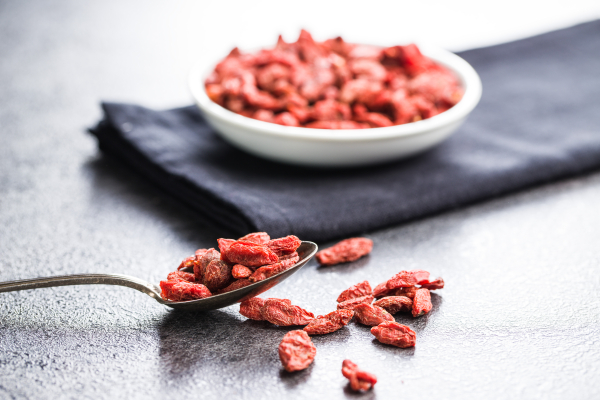- Europa
-
- Amstetten(7)
- Bad Schallerbach(1)
- Baden(4)
- Berg(1)
- Braunau am Inn(5)
- Bregenz(3)
- Bruck an der Mur(1)
- Graz(4)
- Hartberg(1)
- Innsbruck(5)
- Kemmelbach(1)
- Kitzbühel(4)
- Klagenfurt(5)
- Krems an der Donau(1)
- Kufstein(5)
- Leibnitz(1)
- Lienz(1)
- Liezen(1)
- Linz(5)
- Oetz(1)
- Punitz(1)
- Radstadt(1)
- Salzburg(5)
- St Polten(2)
- Steiermark(1)
- Steyr(1)
- Steyregg (1)
- Traun(3)
- Vienna(26)
- Villach(5)
- Völkermarkt(1)
- Wels(5)
- Wien(1)
- Wiener Neustadt(4)
-
- Aalst(1)
- Aarschot(2)
- Affligem(1)
- Anderlecht(5)
- Antwerp(11)
- Antwerpen(1)
- Arlon(6)
- Ath(2)
- Aubange(5)
- Bastogne (2)
- Blankenberge (1)
- Bruges(5)
- Brussels(15)
- Charleroi(5)
- Deinze(3)
- Dendermonde(1)
- Diest(2)
- Etterbeek(5)
- Geel(1)
- Genk(5)
- Gent(6)
- Geraardsbergen(1)
- Grimbergen (2)
- Hasselt(5)
- Heusden- Zolder(2)
- Ieper(1)
- Izegem(1)
- Knokke(4)
- Kortrijk(2)
- La Louviere(2)
- Leuven(5)
- Liege(4)
- Limburg(4)
- Lommel(1)
- Mortsel(1)
- Oostende(1)
- Turnhout(1)
-
- Chelyabinsk(1)
- Dubna(4)
- Gelendzhik(1)
- Irkutsk(1)
- Kaliningrad(1)
- Kazan(4)
- Krasnodar(3)
- Krasnoyarsk(1)
- Maykop(1)
- Moscow(50)
- Nizhny Novgorod(4)
- Novosibirsk(1)
- Omsk(1)
- Penza(1)
- Rostov-on-Don(2)
- Saint Petersburg(13)
- Samara(1)
- Saratov(1)
- Serpukhov (2)
- Sevastopol(3)
- Sochi(5)
- Stavropol(1)
- Surgut(1)
- Tyumen(2)
- Ufa(2)
- Vladivostok(3)
- Yekaterinburg (11)
-
- Alicante(8)
- Barcelona(113)
- Benalmadena(1)
- Benidorm(7)
- Castellón de la Plana(1)
- Denia(1)
- Estepona(1)
- Fuengirola (3)
- Ibiza(49)
- Jerez de la Frontera(1)
- Lanzarote(1)
- Las Palmas de Gran Canaria(5)
- Madrid(57)
- Malaga(9)
- Marbella(48)
- Murcia(1)
- Oviedo(1)
- Palma de Mallorca(48)
- Puerto Banus(3)
- Seville(1)
- Tarragona(1)
- Tenerife(7)
- Torrevieja(3)
- Valencia(9)
- Vigo(1)
- Zaragoza(1)
- Worldwide
Betaine: What It Is and Its Benefits
 The human gastrointestinal system is heavily influenced by diet and emotional well-being. Modern lifestyles, with their fast food, irregular meals, and stress, can take a toll on our digestive health. Supporting the digestive system with certain substances can help restore and maintain its proper function. One such substance is betaine.
The human gastrointestinal system is heavily influenced by diet and emotional well-being. Modern lifestyles, with their fast food, irregular meals, and stress, can take a toll on our digestive health. Supporting the digestive system with certain substances can help restore and maintain its proper function. One such substance is betaine.The Benefits of Betaine for the Body
Betaine, a derivative of the amino acid glycine, is crucial in various metabolic processes, including the conversion of homocysteine to methionine and DNA methylation. Combined with hydrochloric acid, betaine forms Betaine Hydrochloride (HCl), a compound that supplements stomach acid without altering its natural pH. Studies show that around 40% of individuals over 40 years old have low stomach acid secretion, making Betaine HCl a valuable supplement. Here are several key benefits of betaine:
Enhanced Digestion
Betaine promotes the production of stomach acid, facilitating the breakdown of food and the absorption of nutrients.
Liver Health Support
Betaine helps protect the liver from damage caused by alcohol, toxins, and other harmful substances, reducing inflammation and improving liver function.
Cholesterol Management
It reduces bad cholesterol levels and increases good cholesterol levels, thereby lowering the risk of atherosclerosis and artery blockages that can affect cardiovascular health.
Muscle Mass Increase
Betaine stimulates creatine production, aiding muscle recovery post-exercise, enhancing muscle strength, and boosting endurance.
Cognitive Function Improvement
This amino acid enhances blood flow to the brain, which can improve cognitive functions such as memory, attention, and concentration. It also offers protection against age-related and neurodegenerative damage.
Immune System Strengthening
Betaine boosts the production of immune cells, helping the body fight infections more effectively.
Skin Health Enhancement
Widely used in skincare products, betaine hydrates the skin, reduces wrinkles and fine lines, and improves skin elasticity.
Foods Rich in Betaine
Betaine is naturally present in various foods. The best sources include:
Beets: A cup of boiled beet juice contains approximately 1.5 grams of betaine.
Eggs: One boiled egg yolk provides about 0.3 grams of betaine.
Quinoa: A cup of cooked quinoa contains about 0.5 grams of betaine.
Broccoli: One serving of cooked broccoli contains around 0.4 grams of betaine.
Meat: Beef, pork, and poultry are excellent sources, with 100 grams of cooked beef providing about 0.4 grams of betaine.
Fish and Shellfish: 100 grams of salmon contain approximately 0.5 grams of betaine.
Despite these dietary sources, it may still be challenging to meet the body’s betaine requirements through food alone, hence dietary supplements are often recommended by healthcare professionals.
Signs of Betaine Deficiency
A deficiency in betaine can manifest through several symptoms, which should not be ignored:
Bloating, stomach pain, and digestive disturbances
Persistent fatigue and muscle weakness
Frequent heartburn
Regular bouts of intoxication despite normal eating habits
Unexplained yawning and a sense of oxygen deprivation
If these symptoms are observed, a specialized diet and consultation with a healthcare provider are advised.









